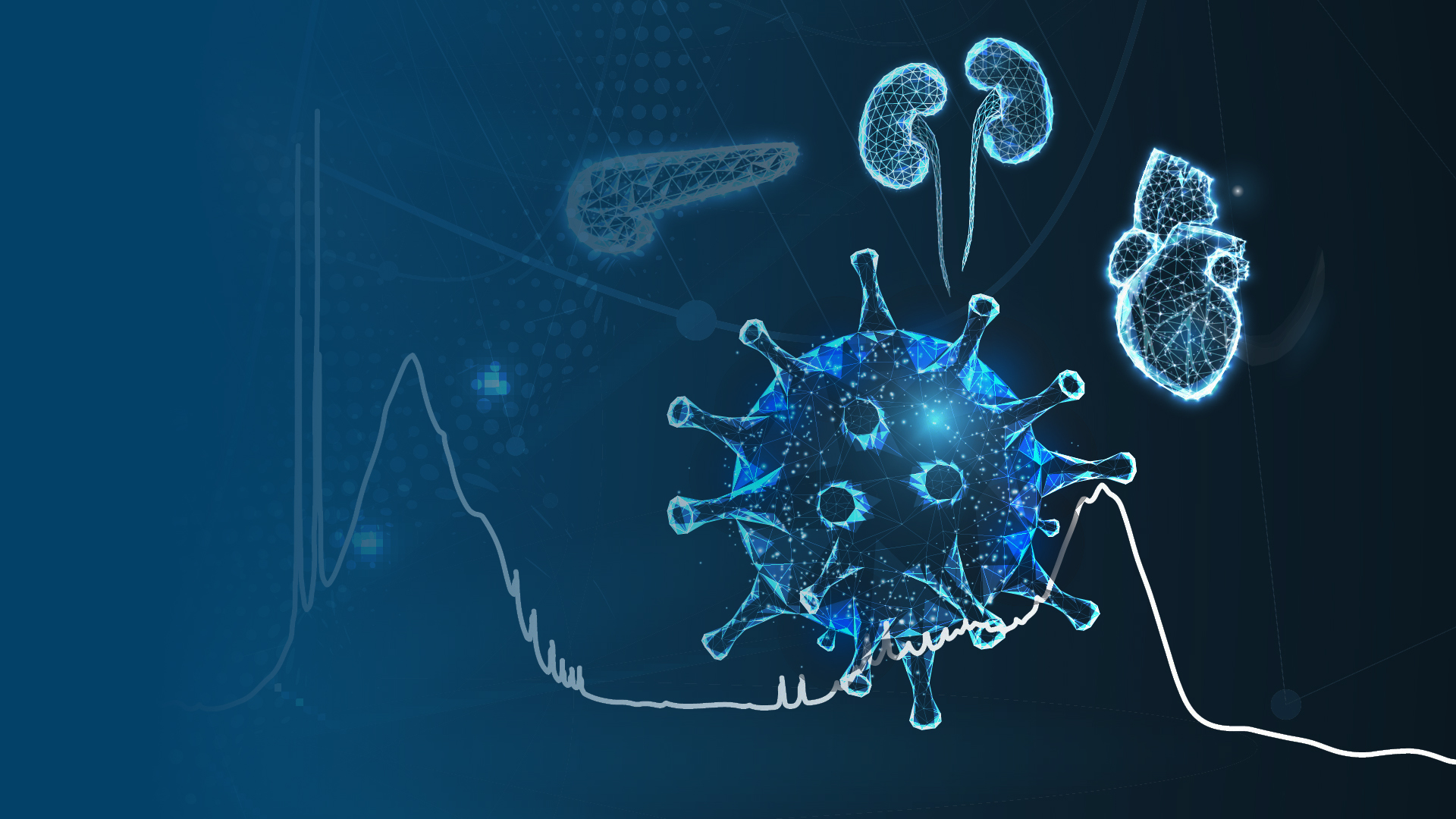

Contributing to Researchers’ Unlocking our clinical understanding of Post-Acute COVID Syndrome (PACS), patient recovery, and risk of subsequent disease
Webinar Overview
A better understanding of COVID is urgently needed in order to improve the management of long-term disease risks after acute SARS-CoV-2 infection at the individual and global healthcare level.
More than 1 in 5 adult COVID survivors may suffer from post COVID conditions, also commonly known as Post Acute COVID syndrome (PACS).
Post COVID condition involves damage to a variety of organ systems (e.g. lungs, heart, kidneys, pancreas), along with mental health impairment.
Recent publications have demonstrated that NMR may play a pivotal role in measuring* COVID-19 progression based on phenomic molecular signatures, and it is also helping researchers gather new insights into various post COVID condition mechanisms of action.
Thereby NMR* enables the study of SARS-CoV-2 triggered metabolic phenoconversion, defined as transient or persistent systemic change of the molecular signature in human blood after acute infection.
Subsequent Phenoreversion, indicated by normalization of the metabolic signature, can be detected by NMR* and may mark PACS recovery.
That’s why Bruker is now offering NMR-based “PhenoRisk PACS™ RuO*”. A multi-organ risk screening having the potential to enable in-depth monitoring of PACS to detect secondary disease as early as possible.
Watch this webinar to learn about the metabolic changes during COVID-19 disease, and how NMR is contributing to researchers’ unlocking our clinical understanding of Post-Acute COVID Syndrome (PACS), patient recovery, and risk of subsequent disease.
Wednesday, July 27, 2022
Key Learning Objectives
- Understand the phenoconversion and phenoreversion concept in COVID disease
- Understand the metabolomic biomarkers involved in PACS/Long COVID
- Understand the recent publications on NMR*-based multi-organ risk screening in PACS.
Who Should Attend?
- NMR* scientists
- Researchers studying COVID 19 disease
- Clinical trial investigators
- Clinicians.
*The methods and solutions discussed during the webinar are for research use only and not for use in clinical diagnostic procedures
Speakers
Dr. med. Anne Thews
Associate Director Clinical Operations
Anne has received her medical degree from the University of Mainz / Germany in 1989 and holds a doctoral degree in Human Genetics. She worked at the Division of Haemato-Oncology at the University Mainz responsible for patient care, a diagnostic core facility laboratory and a stem cell transplantation service. Then Anne joined the Medical Diagnostics Industry holding various management positions at Beckman Coulter, Philips Medical and Curetis as Marketing and Medical Affairs Executive. Anne joined Bruker in 2021 supporting product marketing and clinical affairs.
Dr. Manfred Spraul
Chief Technology Officer Applied, Industrial, Clinical Division
Dr. Claire Cannet
Market Manager Clinical